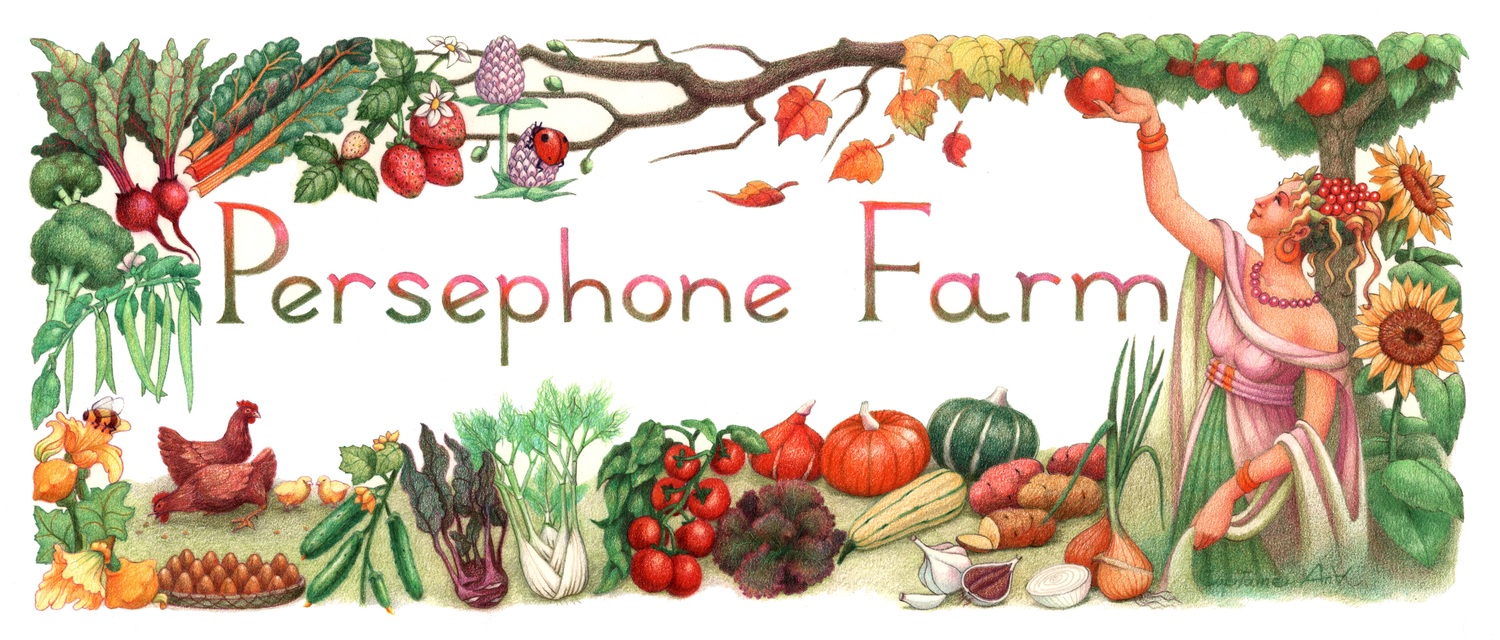On Farm Fertility
We strive to create as much fertility as possible on the farm. Currently, conventional agriculture is heavily dependent on the Haber-Bosch process, which extracts nitrogen from the atmosphere for use in fertilizers. This process is highly energy intensive and dependent on nonrenewable fuels, such as natural gas, which make a substantial contribution to global warming. Organic agriculture derives nitrogen largely from manures and livestock products, such as feathermeal and bloodmeal. As organic crop production grows, as we hope it will, these renewable materials may become very expensive and scarce due to the increased demand. Other fertilizers commonly used in agriculture, such as phosphate, potash, lime, and gypsum are frequently derived from mined materials, some of which are becoming scarce. If humanity is to achieve an agriculture capable of feeding a thousand generations, we must learn to work with limited fertility resources.
The quest for deriving all fertility from the farm itself is a bit like the search for the Holy Grail. At this point, the best Persephone Farm has done is to substantially reduce the need for purchased fertilizer. We have done this largely through the use of cover crops that naturally extract nitrogen from the air and also feed the soil life that converts the soil's inherent fertility into nutrients that plants can use. Livestock, such as our chickens also play an important role in adding plant available foods to the soil. Ultimately, the use of nonrenewable fertilizers will only be eliminated if composted human waste, free of industrial contaminants, is brought back into the agricultural cycle
Cover crop at Persephone Farm.
Chickens on pasture
Crew standing in the sudan grass cover crop
Phacelia cover crop
Chickens forage for greens and seeds amongst crop residue and their intestinal tract converts it into plant available food in the form of manure. Chickens work reasonably well on a farm as small as Persephone, but much of their feed is grown in the Mid West and dependent on the fossil fuel subsidy to bring it to our birds. Given more land, we would use ruminants such as cattle, sheep, and goats who are capable of living off of farm pasture with little or no off farm purchases. Several years of cattle on a pasture can provide substantial fertility for a following vegetable crop.
Clover cover crop
Vetch cover crop.







